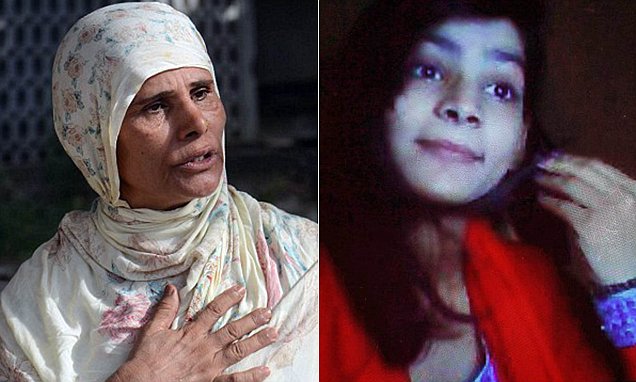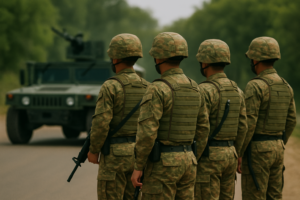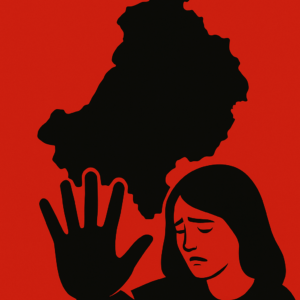In many South Asian societies, particularly in Pakistan, a disturbing pattern exists – one that often goes unnoticed, unchallenged, and unspoken. Parents, under the guise of love, care, and religious duty, tend to subjugate their children’s desires, dreams, and even their basic confidence.
This isn’t merely a matter of strict upbringing; rather, it borders on emotional manipulation, verbal abuse, and at times, corporal punishment.
Unfortunately, this behavior is not only normalized but often celebrated as a sign of “good parenting.”
To begin with, it is important to recognize that childhood is a fragile phase, where the foundation of a person’s character is laid. However, instead of nurturing a child’s individuality, many parents impose their own unfulfilled dreams upon them.
Children are told what to study, whom to marry, and even how to think. The moment a child dares to express an independent opinion, it is seen as rebellion or, worse disobedience.
Moreover, the issue of corporal punishment is deeply rooted in traditional parenting styles. Beating with sticks, slapping, yelling, and locking children up as punishment are tragically common in many households.
These forms of discipline, known collectively as corporal punishment, are often justified by saying, “This is how we were raised.” But just because something is old does not mean it is right. In fact, psychological studies have consistently shown that physical punishment lowers self-esteem, increases aggression, and damages trust between parent and child.
In the same vein, verbal abuse is equally harmful. When children are constantly told they are “good for nothing,” “useless,” or “a burden,” their self-worth slowly erodes. These words become internalized, and children begin to believe that they are not enough, no matter what they do.
As a result, many grow into adults with shattered confidence, always doubting themselves, always trying to please others, and never truly knowing who they are.
In one of the most horrifying cases of parental cruelty in Pakistan, Parveen Bibi – a mother – was sentenced to death for burning her own 18-year-old daughter, Zeenat Rafiq, alive.
Zeenat’s only “crime” was that she chose to marry a man of her own choice, something that is her legal and Islamic right. The woman who once gave birth to her tied her to a bed, doused her in kerosene, and with the help of her son, Anas – set her daughter on fire.
This heart-wrenching tragedy reflects the dark side of parenting in a society where control is masked as care. Parveen Bibi didn’t just burn her daughter’s body; she extinguished her light, her autonomy, and her fundamental right to live freely.
Such acts of violence by parents, particularly against daughters, are a chilling reminder of how women’s choices are still seen as threats in many parts of Pakistan. It shows how family honor is often placed above a woman’s life – a cruelty that begins at home, under the roof meant to protect.
Furthermore, religion is often used as a tool to justify blind obedience. While Islam, like many other religions, emphasizes respect for parents, it does not preach oppression or emotional imprisonment.
Yet, parents misuse this teaching to demand absolute compliance – even in matters where they are clearly wrong. The tragedy lies in the fact that society sides with the parents, no matter how unjust they may be. No laws are enforced, no social awareness campaigns are run, and no one dares to question this norm. In this environment, the child’s voice is lost in the wind.
To add insult to injury, such parenting styles are passed down like a family heirloom. “Spare the rod and spoil the child” becomes the motto. And yet, it takes very little reflection to realize that respect earned through understanding is far more powerful than fear forced through punishment.
In conclusion, parenting is not about authority; it is about guidance. Every child is born with a unique personality, dreams, and purpose. Crushing their spirit in the name of discipline is neither ethical nor effective. As the saying goes, “You can lead a horse to water, but you can’t make it drink.” Likewise, you can force a child to obey, but you can’t force them to be truly happy or fulfilled.
It’s high time we stop treating children as possessions and start seeing them as individuals. For, at the end of the day, the scars on the skin may heal, but the wounds on the soul remain – silent, invisible, and lifelong.
📍 English Language Educator | Blogger & Content Strategist | 7+ Years in Educational Blogging
Nosheen Bashir is a dedicated English teacher and experienced blogger with over seven years of expertise in content creation and educational writing. Passionate about language, literature, and effective communication, she combines her teaching experience with blogging skills to create insightful, research-backed content that helps learners and educators alike.
🔹 Expertise & Achievements:
✔ English Language Education: A skilled educator with years of experience in teaching English grammar, literature, and communication skills to students of varying levels.
✔ Educational Blogging: Running a successful blog for 7+ years, delivering well-structured, engaging content on language learning, writing techniques, and academic success.
✔ SEO & Content Strategy: Specializes in creating high-ranking, authoritative articles that follow Google’s EEAT principles, ensuring content that is both informative and search-friendly.
✔ Student-Centric Approach: Committed to making English easier, engaging, and accessible, helping readers and students improve their language proficiency.
🚀 With a passion for teaching and writing, Nosheen Bashir is dedicated to crafting educational content that empowers students, teachers, and language enthusiasts worldwide.









